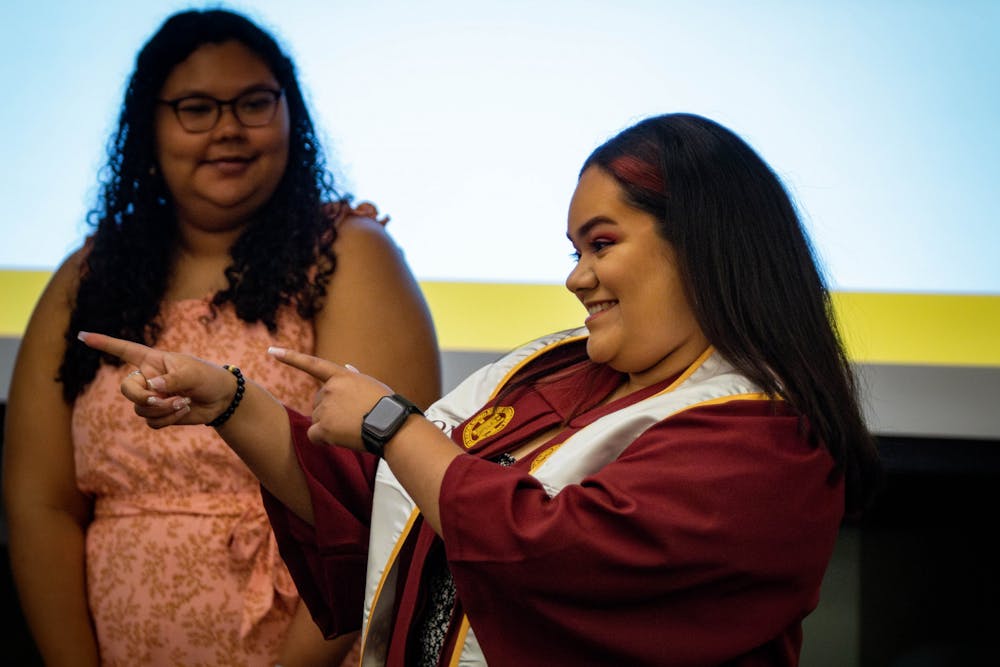Brian Segovia, a student coordinator at Elon University’s El Centro, said during the Celebremos: Graduates Take Flight event that he cannot describe his four years at Elon without talking about the Latinx and Hispanic community he found at Elon. Segovia said despite the Hispanic community at Elon being a small group, it is a mighty community.
At the May 18 bilingual ceremony, graduating seniors were able to share what El Centro has meant to them, thank their support systems and families and have their stoles presented to them.
Segovia said he has been a student coordinator since his freshman year, the longest out of any student coordinator. He said as a freshman working on planning events, he was thrown into the deep end. Though overwhelming, Segovia said it was a rewarding experience.
“It made me feel really proud to display my identity,” Segovia said. “I think before I got here, I really wanted to have a space where I could express the things that I was passionate about and I was really passionate about this community. So I'm very thankful for that.”
Sylvia Munoz, director of the Center for Race, Ethnicity and Diversity Education, said this event is one of her favorites, but also one of the saddest, as she watches each senior graduate. At the event, staff members, family and friends were in attendance — both in person and virtually — to celebrate the seniors.
“Thank you so much for helping us celebrate your students,” Munoz said. “Today it's OK to clap, cheer, sing, bailar and be loud.”
Graduating seniors prior to the ceremony wrote speeches thanking their villages — or the people who have helped get them to where they are today. Their speeches were then presented in either Spanish or English by faculty members at Elon.
Senior Jennifer Morales wrote how proud she was of her peers and mentors who preserved through a global pandemic, while adapting to Elon as Hispanic students. Israel Balderas, professor of journalism, presented Morales’ words during the ceremony.
“As a first generation student and a Mexican American woman in a private predominantly white institution, there were moments of difficulty,” Balderas said. “However, it is the unwavering support and love from my community that keeps me going continuously propelling me forward.”
Morales wrote that through the support she had, her identity has remained at the forefront of her mind and she has been able to stay prideful of her heritage — despite feeling isolated at a school without a large Hispanic population.
“Attending a private, white institution felt like entering a whole new world,” Balderas said. “Yet, I never forgot my roots, your teachings and values served as my anchor, instilling in me a sense of pride in my heritage and guiding me through uncharted territory.”


